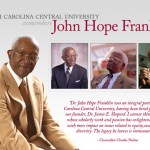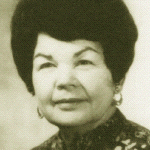Education
OK, so this GenomeWeb Daily News article is approximately four centuries old in internet time (i.e. around a week), but it's worth going back and reading.
I've previously argued at length that although personal genomics currently offers little in the way of useful, predictive health information, that lack of information in itself represents an important opportunity to educate consumers about the fuzzy nature of common disease genetics.
So long as personal genomics companies represent the data accurately (which the major reputable companies currently do quite well, by and large), their…
I may have to think about retiring in 15 years or so, and I may just have to move to New Zealand. The trends are all going in the right direction.
There has been a sharp rise in the number of New Zealanders with no religious affiliation, new research shows.
In a study by the University, 40 per cent of respondents say they have no religious affiliation compared to 29 per cent 17 years ago.
Just over a third of New Zealanders describe themselves as religious.
Sounds so lovely. Of course, it's not perfect yet:
Fifty-three per cent say they believe in God (although half of those say they have…
...but sadly, it's not. Jenny McCarthy has struck again.
Yesterday, given the release of Jenny McCarthy's new book espousing antivaccinationism and autism quackery and the attendant media blitz the antivaccine movement has organized to promote it, I predicted that a wave of stupid is about to fall upon our great nation.
Well, the stupid has landed. And how. An interview with Jenny has just been published on the TIME Magazine website in which she "surpasses" herself. In fact, so dense is the stupid emanating from what passes for a "brain" in that empty head of hers that words fail me.…
Originally posted by Grrlscientist
On March 27, 2009, at 10:59 AM
I have lived and worked with people whom I have decided, in retrospect, were more than merely hateful and mean-spirited, they were just plain evil. So when Barbara Oakley asked me to read and review her book, Evil Genes: Why Rome Fell, Hitler Rose, Enron Failed, and My Sister Stole My Mother's Boyfriend (Prometheus Books; 2008), I readily agreed. This well-written and very readable book is an exploration of evil people who exhibit an extreme form of Borderline Personality Disorder, which profoundly damages the lives of so many…
by revere, cross-posted from Effect Measure
Tufts University is the latest institution to step in the Conflict of Interest mess and come out with shoes that smell. The University had organized a conference on conflict of interest in medicine and research, with Iowa's Republican Senator Charles Grassley as the keynoter. Grassley has been an indefatigable crusader against instances of fraud and abuse against the federal government, and is a principal author and defender of the Federal False Claims Act, which allows whistleblowers to share in the recovery of fraudulently obtained monies (for an…
Originally posted by Janet Stemwedel
On March 26, 2009, at 11:58 AM
What is it like to be a woman scientist? In a society where being a woman is somehow a distinct experience from being an ordinary human being, the answer to this question can be complicated. And, in a time and place where being a scientist, being a professional -- indeed, even being American -- was still being worked out, the complexities of the answer can add up to a biography of that time, that place, that swirl of intellectual and cultural ferment, as well as of that woman scientist.
The astronomer Maria Mitchell was not…
Tufts University is the latest institution to step in the Conflict of Interest mess and come out with shoes that smell. The University had organized a conference on conflict of interest in medicine and research, with Iowa's Republican Senator Charles Grassley as the keynoter. Grassley has been an indefatigable crusader against instances of fraud and abuse against the federal government, and is a principal author and defender of the Federal False Claims Act, which allows whistleblowers to share in the recovery of fraudulently obtained monies (for an excellent account, see Henry Scammell's…
One of the most common comments I get from people:
I dont understand why youre going to school in Oklahoma. Srsly. Oklahoma? Why didnt you got to UCSF or Harvard or something? Oklahoma??
Well, there are lots of reasons why I like it here. This is one of those reasons:
In response, OU President David Boren said recently that colleges and universities should be a free marketplace of ideas, and it is inappropriate for legislators to attempt to restrict speech on campuses.
...
Richard Broughton, an OU zoology professor and president of Oklahomans for Excellence in Science Education, said the…
Missing Or Mutated 'Clock' Gene Linked To Vascular Disease:
The circadian clocks that set the rhythmic motion of our bodies for wakeful days and sleepy nights can also set us up for vascular disease when broken, Medical College of Georgia researchers say. Mice with mutated or missing "clock" genes are prone to thick, inflexible blood vessels with narrow passageways, unhealthy changes typically associated with risk factors such as smoking, high blood pressure and cholesterol, according to research in this week's issue of Circulation.
Visual Learners Convert Words To Pictures In The Brain And…
Dr John Hope Franklin was a 1935 A.B. graduate of Fisk University in Nashville, TN, then earned his M.A. (1936) and Ph.D. (1939) from Harvard University. [For reference, W.E.B. DuBois also graduated from Fisk (1888) and was the first Black to earn a Ph.D. from Harvard (1895).] Franklin's doctoral dissertation, The Free Negro in North Carolina, 1790-1860, planted the seed for his classic 1947 work, From Slavery to Freedom: A History of Negro Americans (subtitle later changed to "A History of African-Americans"). This book, now in its eighth edition, was written originally during his four-…
tags: Evil Genes, borderline personality disorder, machiavellian behavior, successfully sinister, Barbara Oakley, book review
I have lived and worked with people whom I have decided, in retrospect, were more than merely hateful and mean-spirited, they were just plain evil. So when Barbara Oakley asked me to read and review her book, Evil Genes: Why Rome Fell, Hitler Rose, Enron Failed, and My Sister Stole My Mother's Boyfriend (Prometheus Books; 2008), I readily agreed. This well-written and very readable book is an exploration of evil people who exhibit an extreme form of Borderline…
Raising The Alarm About Chimpanzee Massacre In The Democratic Republic Of Congo:
Poachers in the Democratic Republic of Congo (DRC) threaten the existence of the largest remaining continuous population of chimpanzees in the world. This conclusion is drawn by Cleve Hicks, based on observations made during his 2007-2008 survey of towns, villages and forests in the Buta-Aketi region of the country.
Australia's Most Endangered Snake Might Need More Bush Burning:
Conserving Australia's most endangered snake might mean lighting more bush fires, ecologists have proposed. The last remaining…
Dr Geraldine P Woods (1921-1999) was inarguably the most influential scientist in establishing and promoting NIH's programs in research and research training for underrepresented groups. Therefore, I have chosen her story for my entry to this month's Diversity in Science blog carnival recognizing Women's History Month.
My interest in Dr Woods was inspired by a recent post by my friend and colleague, acmegirl, who writes the blog, Thesis - With Children. In her post recognizing the work of Duke University behavioral biologist, Dr Erich Jarvis, acmegirl noted that both she and Dr Jarvis are…
It's here! The second edition of the Diversity in Science Carnival! But it wouldn't be here today without the help of Dr. Free-ride and Dr. Isis. With all the time I have had to devote to my mother and her issues the past two weeks, there is no way I could have gotten the carnival up today without their help. Indeed they really get full credit. I haven't even managed to finish a special post I wanted to do for the carnival - so check back later. I'll update when I have it done and add it in here.
But enough of my travails! Let's get on to the really good stuff submitted to this…
Maria Mitchell and the Sexing of Science: An Astronomer among the American Romantics
by Renée Bergland
Boston: Beacon Press
2008
What is it like to be a woman scientist? In a society where being a woman is somehow a distinct experience from being an ordinary human being, the answer to this question can be complicated. And, in a time and place where being a scientist, being a professional -- indeed, even being American -- was still being worked out, the complexities of the answer can add up to a biography of that time, that place, that swirl of intellectual and cultural ferment, as well as…
My colleague, DrugMonkey, recently wrote an absolutely fantastic post on bigotry in sports and the pioneers other than Jackie Robinson in breaking the so-called color barrier. I had actually forgotten that in the 1970s, Warren Moon spent much of his career in the Canadian Football League because NFL teams wanted him to convert to some other position, you know, because Black players couldn't be quarterbacks. The post is much deeper than that and I encourage you strongly to read it.
But Brother Drug triggered my longstanding intention to write about a related topic; between his post and the…
It's Women's History Month, and the Diversity in Science Carnival has asked us to profile women scientists. I spend a lot of time thing about the things that affect the lives of today's young women scientists, but I also know that we are preceded by some incredibly strong and brave women who faced much tougher working conditions than we. And some of those trail-blazing women in science were young not that long ago. So I'm taking this post to talk with one of those amazing women and see what has changed and what hasn't.
Over the course of two hours, I had a wonderful conversation with this…
This just in from the NCSE:
The future of science education in Texas is on the line. The Texas Board of Education, after two previous contentious public hearings on high school science standards (TEKS), meets March 25-27 for its final vote.
As you may recall, at the previous meeting (January 23rd), the board voted to remove "strengths and weaknesses" wording from the science standards. That was a win for science. However, the Board took a big step backwards by allowing creationists to insert bogus attacks on evolution in the Earth and Space Science standards and the Biology standards…
When the Wall Street Journal called attention to a claim that the Journal of the American Medical Association called a whistle-blower a "nobody" and a "nothing," a claim JAMA denied, I didn't know what to think. I was inclined to give JAMA the benefit of the doubt. Whatever dealings I've had (and they are few) with JAMA's editor in chief, Dr. Catherine DeAngelis, she's been pleasant and has a reputation for being a tough and intelligent editor. It sounded as if someone had gotten a little irritated and maybe said things in a way that wasn't quite appropriate, but these things happen. But…
One of the challenges facing the country right now in this time of economic crisis is that we're also about to be confronted by the result of a decade of neglect of the nation's infrastructure, in particular, the chronic starvation of our universities. It's an insidious problem, because as administrations have discovered time and again, you can cut an education budget and nothing bad happens, from their perspective. The faculty get a pay freeze; we tighten our belts. The universities lose public funds; we raise tuition a little bit. A few faculty are lost to attrition, and the state decides…


